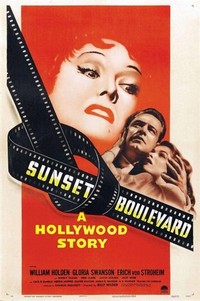
Sunset Blvd. (1950)
Sunset Boulevard

Raiting: ![]() 8,5 /10
8,5 /10
Genre: Drama
Director: Billy Wilder
Stars: William Holden, Gloria Swanson and Erich von Stroheim
Country: United States
Release date: 10 August 1950
Length: 110 minutes


Raiting: ![]() 8,5 /10
8,5 /10
Genre: Drama
Director: Billy Wilder
Stars: William Holden, Gloria Swanson and Erich von Stroheim
Country: United States
Release date: 10 August 1950
Length: 110 minutes